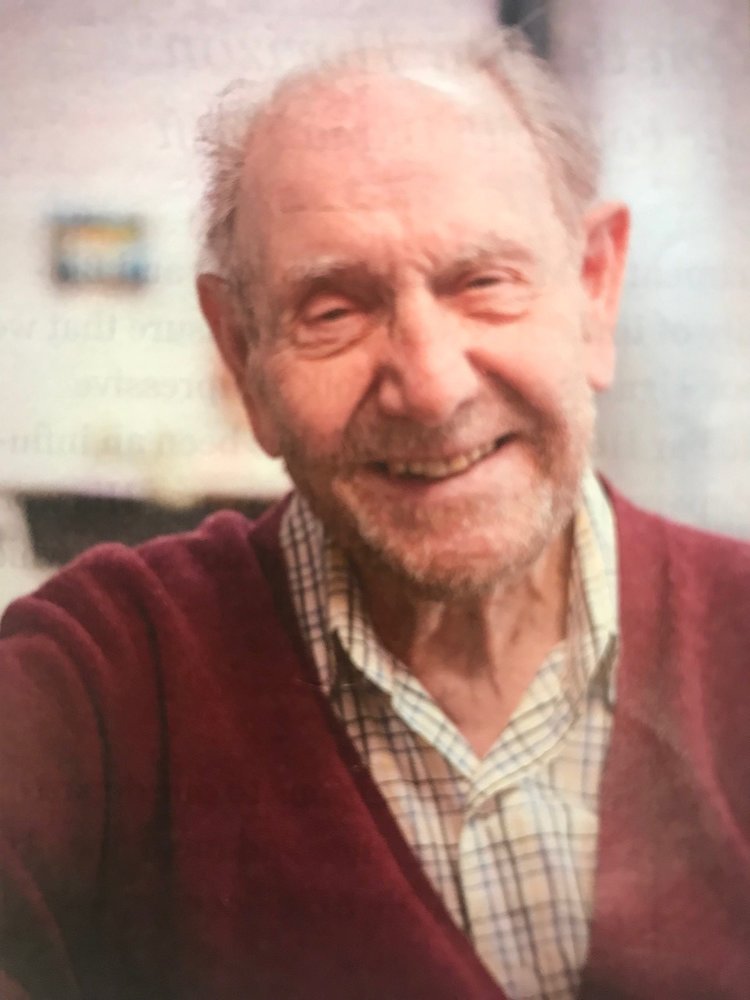Obituary of Dr. G. Edgar Folk
Dr. G Edgar Folk Jr., Professor Emeritus in the Department of Molecular Physiology and Biophysics at the University of Iowa, Carver College of Medicine in Iowa City, Iowa, passed away peacefully on Sunday, December 10, 2017, at the Oaknoll Retirement Center in Iowa City, which has been his residence for 34 years. Besides being an extraordinary professor and research scientist in Environmental Physiology, he was also an avid explorer, dedicated teacher, and prolific speaker, both locally and internationally.
Dr. Folk is survived by his daughter, Victoria Sprague of Portland, Maine, and his six grandchildren: Jennifer, Emily and Joshua, the children of his daughter, Victoria, and Julia, Lisa, and Christopher, the children of his adopted (deceased) son, Christopher H. Dodge. Dr. Folk is also survived by nine great-grandchildren, and step children Jon, Carolyn, Rosemary, Chris and Kurt, the children of his third wife, Bess Kueny, who passed away at Oaknoll Retirement Center in 2006.
Dr. Folk embraced his scientific work with his unique philosophy: “Unless you’re uncomfortable, you’re not doing environmental physiology research.” He never came in from the cold weather. Dr. Folk’s research on how animals adapt to light and temperature changes took him to almost every continent on the globe, and for 17 years he lived in Point Barrow, Alaska.
One of his greatest pleasures was lecturing on tour ships to the Antarctic sponsored by the University of Iowa Alumni Association. On these tours he spoke about global warming, penguins, whales and Darwin’s Indians. “I don’t turn down opportunities to travel,” he would laugh. “I’ve traveled by boat, horseback, dogsled, and snowmobile to remote areas of the world to collect data and specimens to be used in my lectures for Global and Environmental Research.” He once said that in the Antarctic, “the penguins would come up and untie your shoelaces.” As an avid birdwatcher, Folk’s lifetime bird list ranges from Midwestern warblers to polar puffins, and from anklets to albatrosses.
Born in Natick, Massachusetts on November 12, 1914, Folk grew up for most of his young life in Georgetown, Massachusetts, as the son of a Methodist Minister. He attended Phillips Andover Academy in 1933 and went on to enroll at Harvard University, receiving an A.B. Degree in 1937, a M.A. degree in the Biological Sciences in 1940, and a Ph.D., degree in the Biological Sciences in 1947. During World War II (1943-1947), he joined the National Guard as a sergeant in the medical core, followed by a very brief stint in the Merchant Marines, and he worked and led the famous Harvard Fatigue Laboratory. There he participated in important research projects for the Quartermaster Corps of the Army concerning the effectiveness of Army-issued arctic uniforms for operational purposes in extreme cold conditions (0 to negative 40 degrees Fahrenheit). Dr. Folk was the last surviving member of that famous Harvard laboratory which closed in 1947.
From 1947-1953, Dr. Folk was an Assistant Professor of Biology at Bowdoin College in Brunswick, Maine. While at Bowdoin College, Dr. Folk received another contract from the United States Army to conduct human experiments on faculty members and students on the topic of the influences of impermeable gloves and boots on human skin exposed to cold conditions. As a result of that research, the Army ordered several thousand foam-rubber boots which proved to be invaluable during the cold months of the Korean War. These boots are presently on display at the Smithsonian Institute under the “Dr. G Edgar Folk, Jr. Exhibit.”
In 1953, Dr. Folk became an Assistant Professor in the Department of Physiology and Biophysics at the University of Iowa Carver College of Medicine and was promoted to the rank of Professor in 1965. In 1966, he proposed that the department offer a new course for graduate and advanced undergraduate students entitled “Environmental Physiology.” This coursed earned him distinction and he was selected as Teacher of the Year for the College of Medicine. In 1966, he was the first recipient of the prestigious John P. Long Teaching Award in the Basic Sciences. He retired in 1982 and in 1985, he was designated Professor Emeritus continuing his research and grantsmanship until 2012. In that year, after more than 40 years of writing scientific articles, conducting research, and lecturing, he officially retired and published his memoir; “Science on the Far Horizon”. In his book he described his early career as a scientist and his lifelong dedication and fascination for physiology and biology.
Throughout his career, Dr. Folk was actively involved with the American Physiological Society and in 2001, received the APS Roy G. Daggs Award for his distinguished service to the Society and to the science of Physiology through his research. As a pioneer in the field of Environmental Physiology, he published (1966) the first textbook devoted to that topic for advanced students, “Introduction to Environmental Physiology.” This textbook became widely accepted by departments of Physiology and Biophysics, Kinesiology, and Exercise Physiology around the world. Eight years later he penned another textbook, “Textbook of Environmental Physiology” and in 1998, he and his associates at the University of New Mexico and the University of Iowa authored an advanced textbook, “Principles of Integrative Environmental Physiology.”
Dr. Folk’s generosity and contributions to the University of Iowa have been numerous and have included many scientific commissions and international wildlife committees. In 2003, the Dean of the College of Medicine acknowledged Dr. Folk’s 50 years of outstanding service to the University of Iowa and commented on his important research on biological clocks and their role in the timing of the biological activity in a variety of species living under diverse environmental conditions. During his distinguished career Dr. Folk traveled to polar regions to collect data related to this topic and his travel and research was facilitated by federal and local research grants and by his affiliation for over 17 years with the Arctic Research Laboratory in Point Barrow, Alaska.
As a pioneer in the field of Environmental Physiology, Dr. Folk is internationally known for his research on the circadian rhythms, or biological clocks, of humans and mammals and his research included cold adaptation, hibernation, and hypothermia and their effects on the cardiovascular systems of humans and mammals. An ardent environmentalist, Dr. Folk has been a member of national and international biometeorology societies, serving on their standing committees. He also chaired numerous sessions at scientific sessions of international meetings and congresses and gave numerous presentations as an invited speaker. He led and lectured on global environmental issues to tour groups that traveled to Chile, South Georgia Islands, and the Antarctic. He was a leader and founding member for the Center for Global Research at the University of Iowa. His seminal contributions to his discipline and the field of Physiology will be long remembered by his colleagues.
In 2014, at the age of 100, he was the oldest senior faculty member at the University. Former University of Iowa President Sally Mason spoke at a birthday celebration in his honor. At that occasion she commented that Dr. Folk’s arrival at a century was “remarkable” and that his accomplishments deserved the most attention, including his many years of major contributions and service to the University of Iowa, State of Iowa, and the academic world. President Mason presented him with a certificate from Governor Terry Brandstad’s office along with a state flag that had flown over the Old Capitol Building, which is emblematic of the University of Iowa. To celebrate the occasion, the Department of Molecular Physiology and Biophysics also dedicated the G. Edgar Folk conference room in the Bowen Science Building.
Much loved by his family and many friends around the world, as well as by the extraordinary nurses and staff at the Oaknoll Retirement Center, he was always dressed in a suit coat and tie and was referred to by those who loved him as “always a gentleman and a true Renaissance man”. No matter how he felt physically in his later years, he would never complain. When asked if he was feeling okay, his reply was always accompanied by a big smile and a twinkle in his blue eyes and he would respond by saying, “Don’t worry, I’m chipper!”
There will be a Celebration of Life Memorial Service for Dr. Folk at the Oaknoll Retirement Center, 1 Oaknoll Ct, Iowa City, Iowa, 52246, on Friday, February 2, 2018 from 2:00-3:00pm. Dr. Folk will be buried at the Oxford Cemetery in Oxford, Iowa, by the side of his last wife, Bess Kueny, and his adopted son, Christopher H. Dodge, in a private family ceremony. In lieu of flowers, please make contributions to the Smithsonian Institute, Audubon Society, American Physiological Society Scholarship Program, or any other society or charity of your choice in care of his daughter Victoria Sprague, 58 Pitt St, Portland, Maine 04103.







